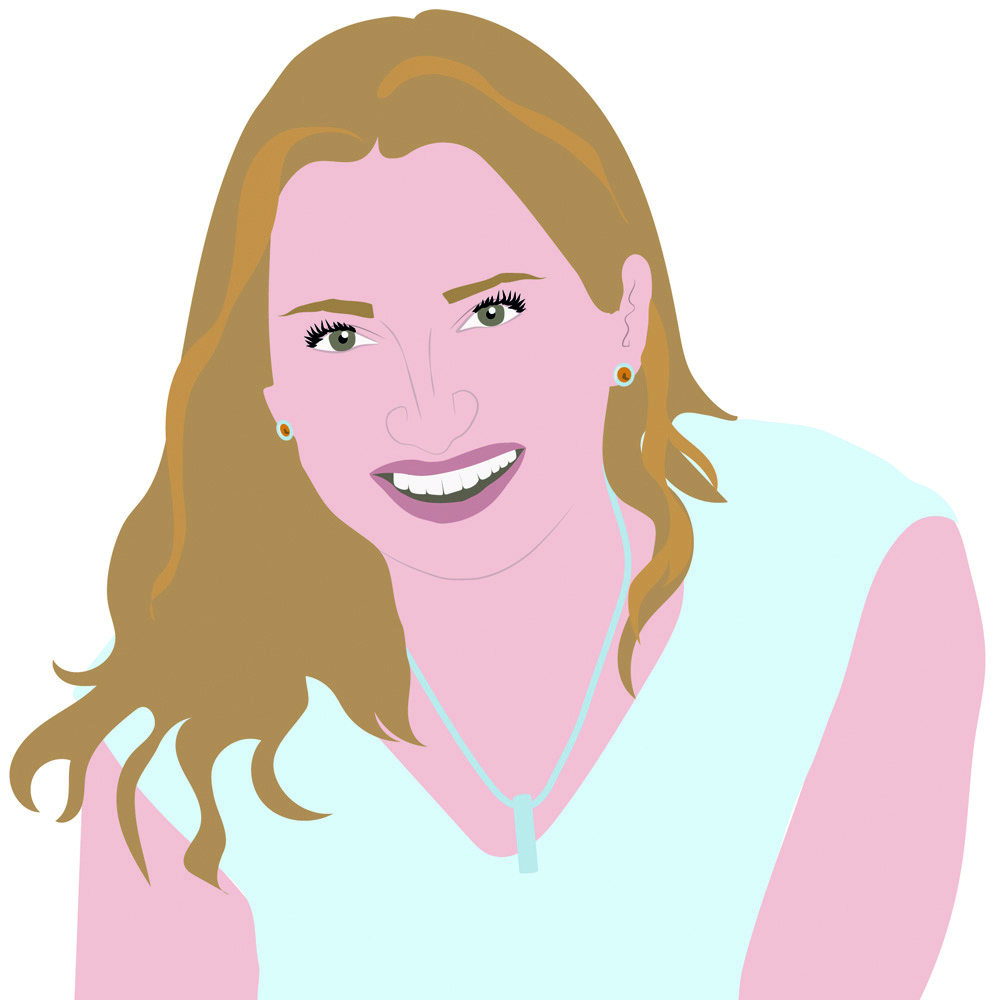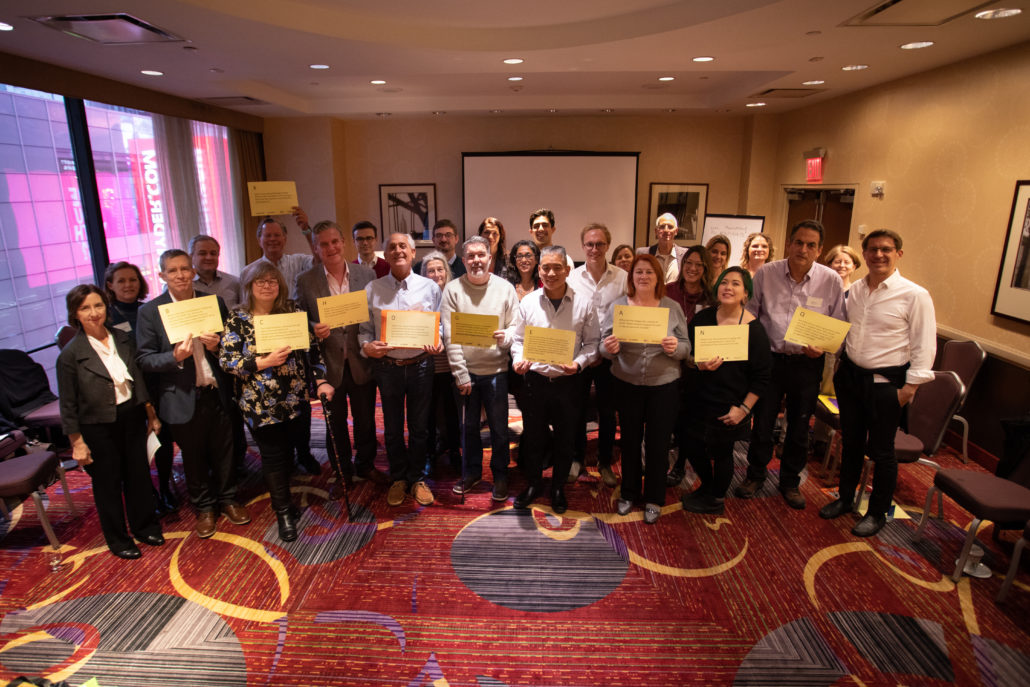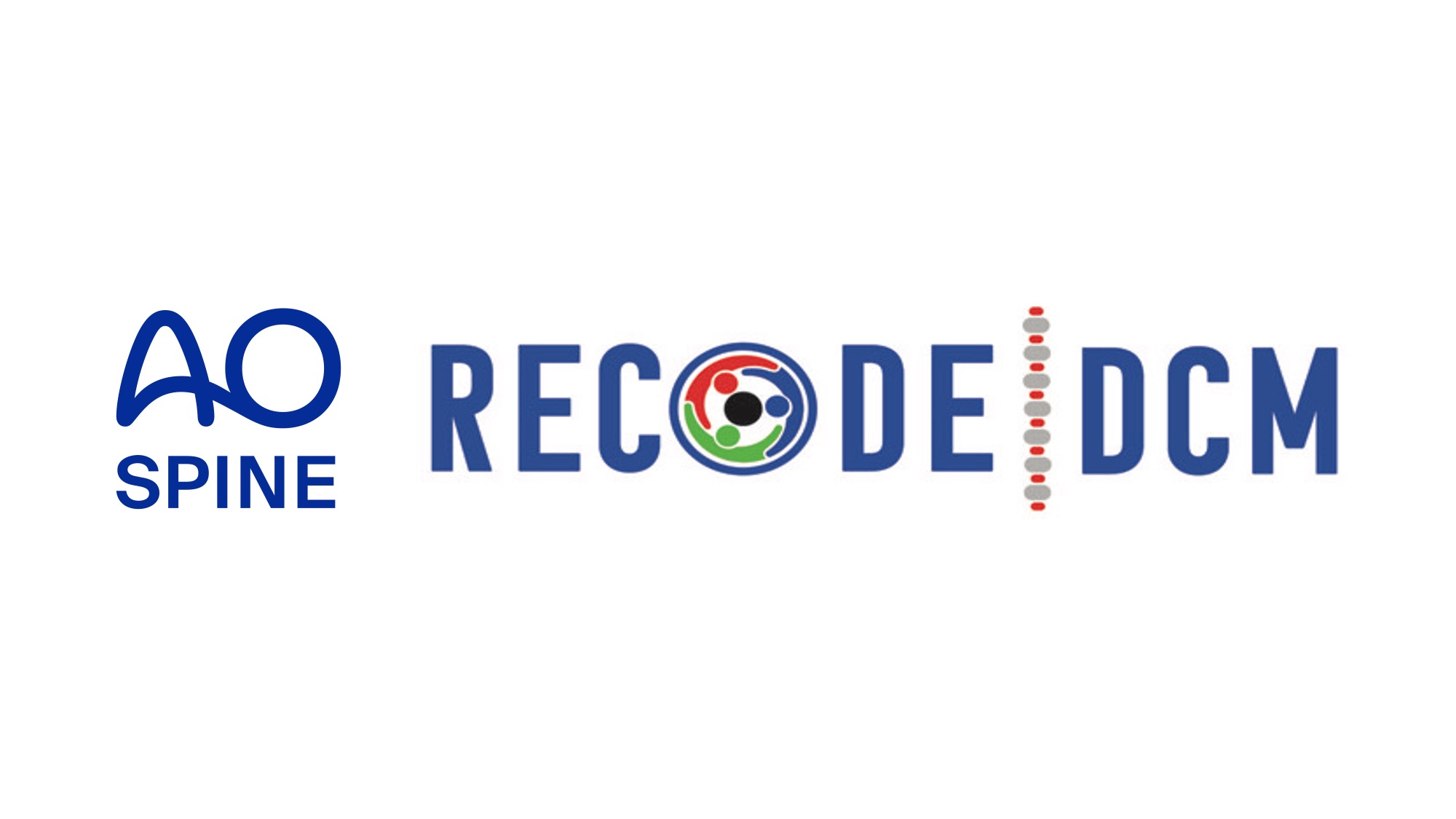Hi, Liz here! I’m a science communicator with a background in physiology and neurobiology. I first met the charity’s founders Dr Mark Kotter, Dr Benjamin Davies, and Iwan Sadler back in 2016 while partnering with Cambridge TV to make the first-ever scientific documentary about DCM (Part 1 and Part 2). The charity has been close to my heart ever since that first meeting, at which I witnessed the profound impact of DCM and embraced the founders’ eager optimism and determination to make a difference.
Since then, we’ve worked together on numerous videos, podcasts, websites and information texts to deliver accurate educational materials and support to all our different stakeholder groups: not only the people who live with DCM and those who care for them, but also their surgeons and allied healthcare professionals, and the general public.
Since 2019 I’ve been collaborating with our partners at AO Spine, part of the surgical AO Foundation in Davos, Switzerland, on the AO Spine RECODE-DCM project. This global initiative has brought together the world’s first and largest community of people living and working with the condition, to close knowledge gaps and find solutions to the questions that matter most to people with DCM.
The Number 1 Research Priority that emerged from the AO Spine RECODE-DCM project is RAISING AWARENESS OF DCM. To advance this mission, I will be producing a quarterly newsletter to update our whole community about developments in the field. Please join our community by subscribing, reading and sharing our newsletter among your doctors, colleagues, family, and friends.
Thank you so much for your support! It means the world to us.
Sincerely,
Liz Roberts

**********
Quarterly Newsletter, March 2022
AO Spine RECODE-DCM aims to accelerate research to improve outcomes in DCM. By bringing those who live with DCM together with those who treat it, our international multi-disciplinary collaboration is closing knowledge gaps.
The Top 10 Research Priorities Go Global

February 2022 saw the milestone publication of the Special Issue of Global Spine Journal ‘Transforming Care for Degenerative Cervical Myelopathy: The Top 10 Research Priorities’. In a world-first, the Editors Dr Benjamin Davies, Dr Brian Kwon, Dr Michael Fehlings and Dr Mark Kotter bring together myelopathy research in one publication. The authors examine each priority in turn, explaining why the question was prioritised and pinpointing strategies for resolving it. GSJ is totally free-of-charge and open-access, to facilitate dissemination of the Top 10 Research Priorities. We hope that this will focus attention on DCM among the scientific and clinical communities, leading to high-quality effective research. Please help us by promoting the Special Issue among your community of healthcare professionals.
Myelopathy.org Inspires Prize-Winning Research
Myelopathy.org, the world’s only charity dedicated to DCM, has announced its inaugural research award for best piece of research aligned with a Top 10 Research Priority. In 2022, the prize will be awarded for the best primary clinical study or systematic review, unpublished or published during 2020–2021. This annual award will be judged by a panel of people with DCM, Trustees, and Representatives from the charity’s Scientific Advisory Board. The winner will be invited to submit a blog post for the charity and join the Myelopathy Matters podcast.
The AO Spine RECODE-DCM management committee hopes that this new award will stimulate high-quality research focussing on the questions that matter most to people with DCM.
To submit your entry, please email the following details to recode@myelopathy.org:
A covering letter stating:
- Your name, country and place of work
- The priority with which your work aligns
- Why it is a significant contribution to the field
A manuscript with a short synopsis of your study:
- Rationale
- Findings
- Conclusions
Finalising The Research Toolkit at The Global Spine Congress, Las Vegas
AO Spine RECODE-DCM will soon finalise its research toolkit, to bring about a new generation of studies that are relevant to all stakeholders, robust and comparable. So far, we have agreed nomenclature (‘DCM’), determined the most critical research priorities, and agreed which outcomes to measure. In Las Vegas on 1 June 2022, we will agree which measurement tools to use in all studies going forward. Once all the components of the toolkit are established, future studies can be standardised with a powerful ‘minimum dataset’.
However, the completion of these objectives will mark the start of a new challenge: ensuring that our community recognises and acts upon them!
You can help us, by spreading the word about AO Spine RECODE-DCM!
Updates from The Incubators
Our hardworking special-interest groups meet regularly to drive advances in three of the Top 10 Research Priorities:
- The Diagnostic Criteria incubator members are scoping the literature for symptoms and signs of DCM to inform the diagnostic pathway.
- The Natural History incubator members have completed a global survey on management of asymptomatic spinal cord compression and are developing a definitions framework for ‘asymptomatic and presymptomatic spinal cord compression’.
- The Peri-Operative Rehabilitation incubator members are developing a scoping survey to explore current practice. Through a series of design workshops, they aim to establish the optimal peri-operative care pathway.
For more information, or if you would like to contribute to the incubators, please email recode@myelopathy.org.
External Notable Research
- Cerebrospinal Fluid Pressure Monitoring: The COMP-CORD Study
Dr Carl M. Zipser is collaborating with Dr Benjamin Davies to evaluate cerebrospinal fluid (CSF) pressure monitoring in both diagnosis of DCM and intra-operative assessment of decompression. This represents a return to concepts that have been dormant for over 40 years, in the search for techniques to overcome the limitations of MRI. CSF extends throughout the cranio-spinal compartment, but spinal canal stenosis can lead to compartmentalization between the cranial and the spinal CSF, possibly a key mechanism in DCM. Carl and Ben conceived the COMP-CORD study for proof-of-concept that CSF pressure pulsations are sensitive to surgical decompression [1]. This approach may be relevant not only for diagnostic purposes but also to improve decompressive spine surgery, with the potential to improve clinical outcomes and enable personalized treatment monitoring. Listen to the discussion on the Myelopathy Matters podcast. - Screening Lumbar Patients for Cervical Problems: The SCREEN-DCM Study
Dr Aria Nouri and Dr Benjamin Davies are exploring tandem stenosis, in which patients with lumbar pathology frequently present with DCM. Their SCREEN-DCM prospective multicentre trial will screen patients with lumbar degenerative pathology for symptoms of DCM. Those who screen positive will undergo a cervical MRI, potentially uncovering an earlier diagnosis of DCM. If successful, such a screening tool can be deployed beyond specialist practices. Aria and Ben will discuss SCREEN-DCM in June on Myelopathy Matters. To be notified of new releases, please follow us on your favourite podcast app.
New Illustrations Put DCM Under The Spotlight

Aaron Cole, a medical illustrator at the Barrow Neurological Institute, has collaborated with Dr Rory Murphy and Dr Benjamin Davies to create an eye-catching illustration designed to shine a light on DCM. Their goal is to bring this poorly understood disease into the public eye. By raising awareness, patients can receive an earlier diagnosis and better prognosis.
Aaron’s work begins with research of the relevant anatomy and, in this case, understanding the diseased portion of the vertebrae and spinal cord. Aaron painted the final illustration using Adobe Photoshop, experimenting with colour, texture and lighting to create something really eye-catching.
“This project is a great example of how art can make science more accessible. In medicine, we often deal with concepts that cannot be seen with the naked eye. Even things that can be seen may be difficult to conceptualize. Because of this, diseases like DCM benefit from some abstraction by an illustrator, to draw in the audience, educate them about the topic and entice them to ask more questions. That is the main goal of my work.”
Aaron Cole
We hope that by fostering such educational outreach initiatives, we can resolve the Number 1 Research Priority of AO Spine RECODE-DCM: Raising Awareness.
Thank You Again for All Your Help and Support
This project is very much a sum of all its individual parts, and it would not have happened without your contribution.
Please feel free to contact AO Spine Knowledge Forum SCI project manager, Olesja Hazenbiller and Dr Benjamin Davies, with any questions, feedback or ideas about next steps.
Sincerely,
The AO Spine RECODE-DCM Management Committee

1 Zipser C et al Intraoperative Monitoring of CSF Pressure in Patients with Degenerative Cervical Myelopathy (COMP-CORD Study): A Prospective Cohort Study. Journal of Neurotrauma 2022 (39): 300-31

